Three of the most impressive water bridges in the world
Categories: Design and Architecture
By Pictolic https://pictolic.com/article/three-of-the-most-impressive-water-bridges-in-the-world.htmlThe so-called water bridges are bridge structures supporting water channels through which it is possible to navigate relatively small vessels. They are built over rivers, river valleys, railways or highways. Although aqueducts have been used to supply cities with water for many centuries, they were never used for transportation until the XVII century, when canal systems began to appear as we see them in our time.
We present to you three of the most outstanding water bridges in the world. Looking at some of the photos, you might think that they were taken in Photoshop. However, this is not the case, these bridges exist and function in real life.
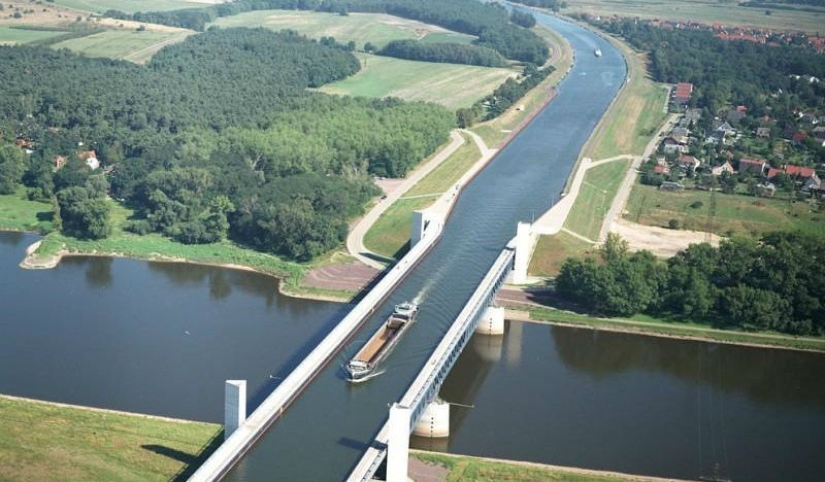
Magdeburg Water Bridge (Magdeburg Water Bridge)

The most popular and impressive water bridge is located in Magdeburg, Germany. It is the longest navigable aqueduct in the world, its length is 918 meters.
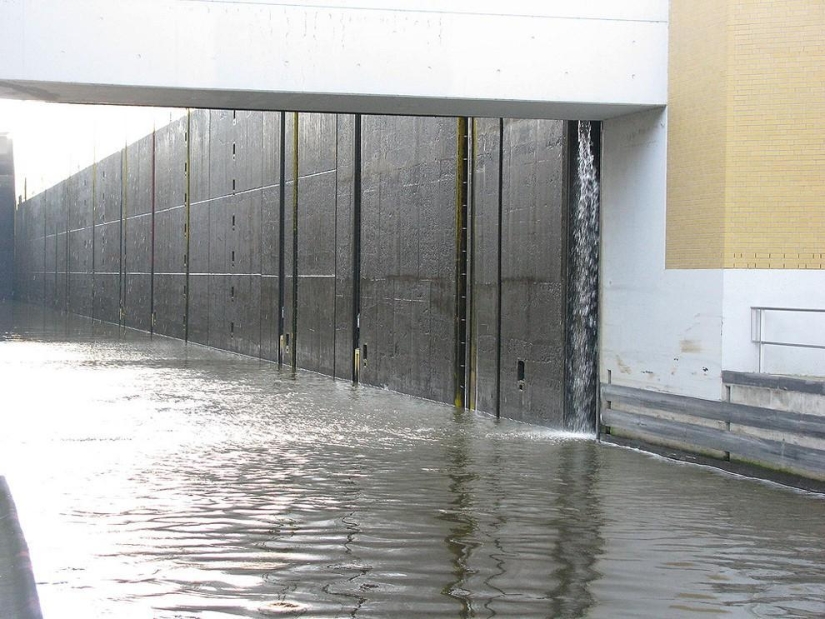
Opened in October 2003 as part of the Magdeburg waterway system, it connects the Elbe-Havel Canal with the Mittelland Canal, crossing the Elbe River on top.
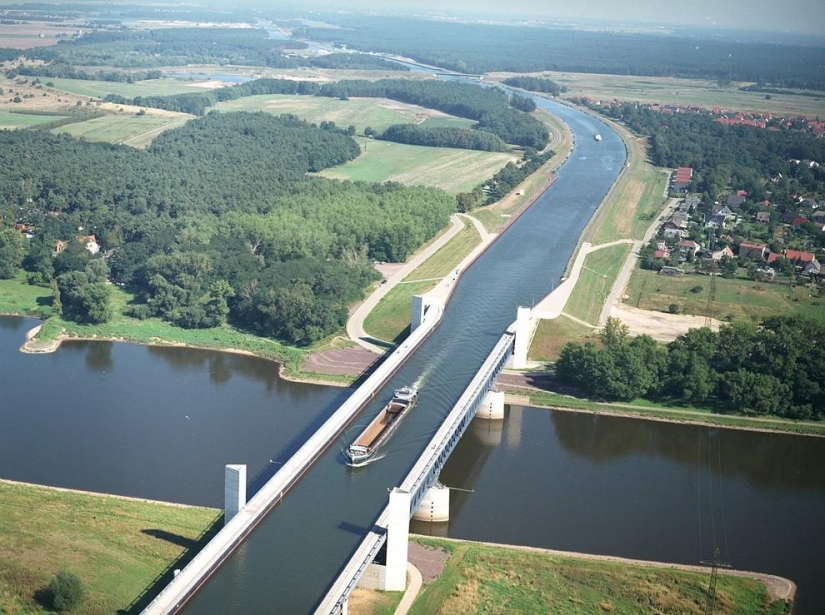
The Elbe-Havel and Mittelland canals used to meet near the city of Magdeburg, but on different banks of the Elbe, the water level in which is lower than in both channels. Therefore, ships sailing from one channel to another had to make a 12-kilometer loop and use locks and ship lifts. And with a decrease in the water level in the river for loaded barges, this option became impossible.
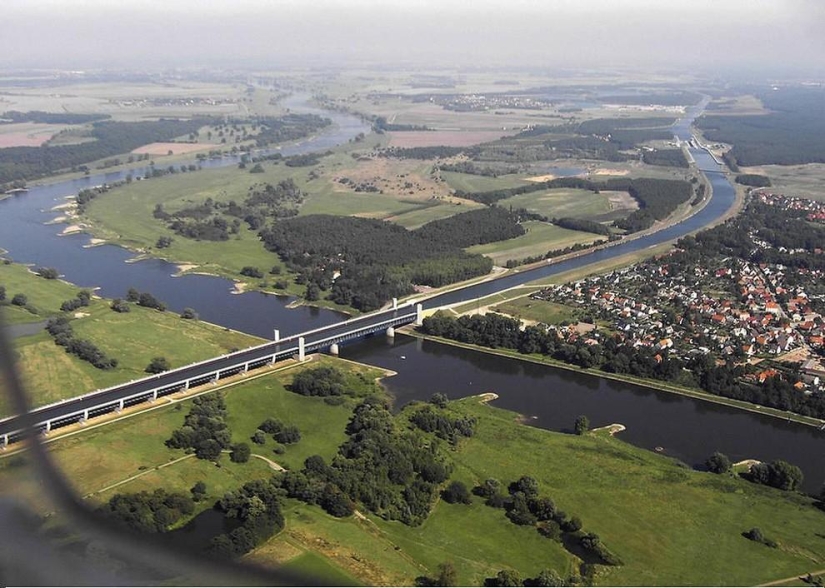
The reunification of Germany and the establishment of the main waterways made the construction of a water bridge a priority. Work began in 1997. As a result, the construction took 6 years and about 500 million euros.
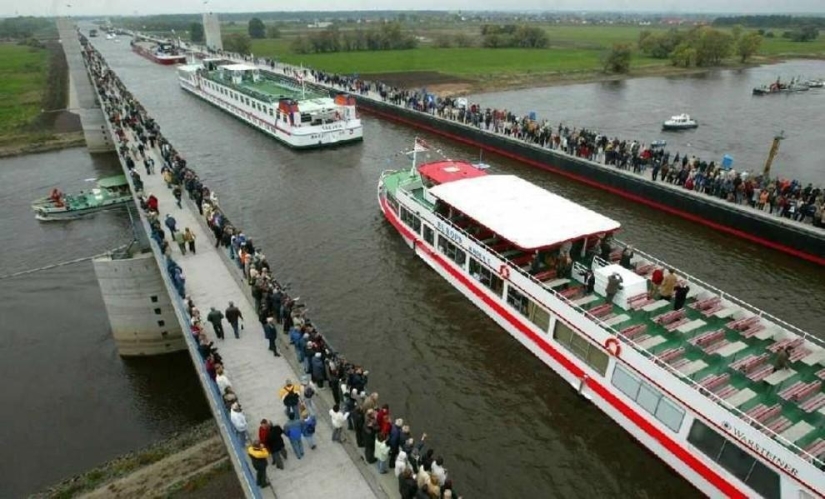
Now a water bridge connects the Berlin River Port with numerous ports on the Rhine River.
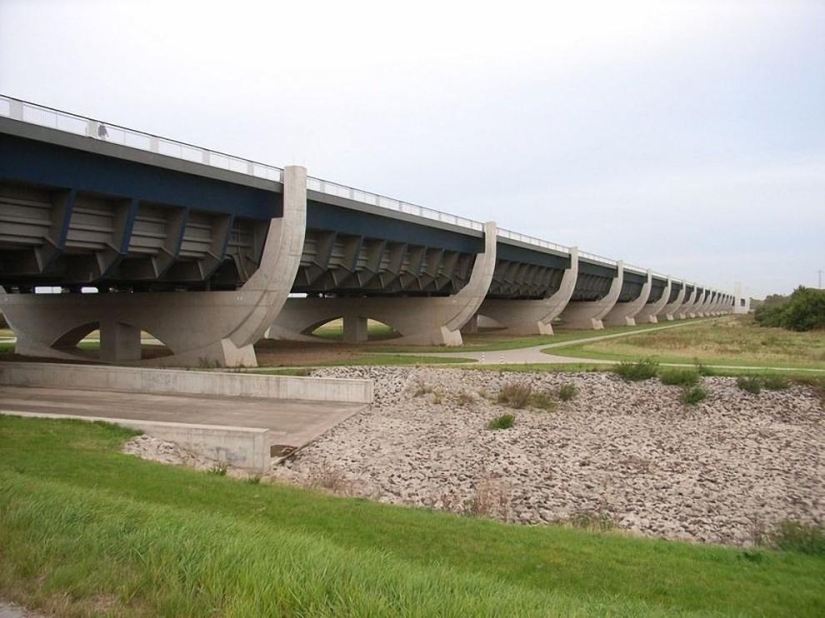
Pontkisillte Aqueduct in Wrexham, UK, was built in 1795-1805 to "throw" the Ellesmere Canal across the Dee Valley and connect the Denbighshire coal mines with the national canal system during the Industrial Revolution.
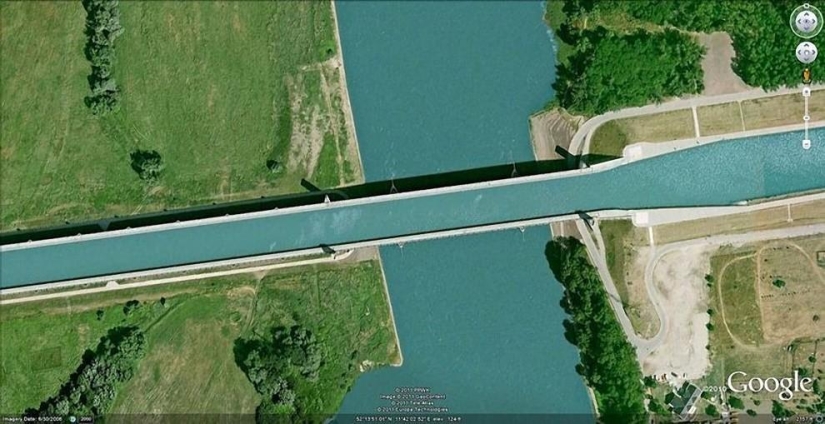
The aqueduct became one of the most significant world achievements of that time. For over 200 years, it has remained the longest and tallest aqueduct in Britain. In 2009, the Pontkisillte Aqueduct was listed as a UNESCO World Heritage Site.
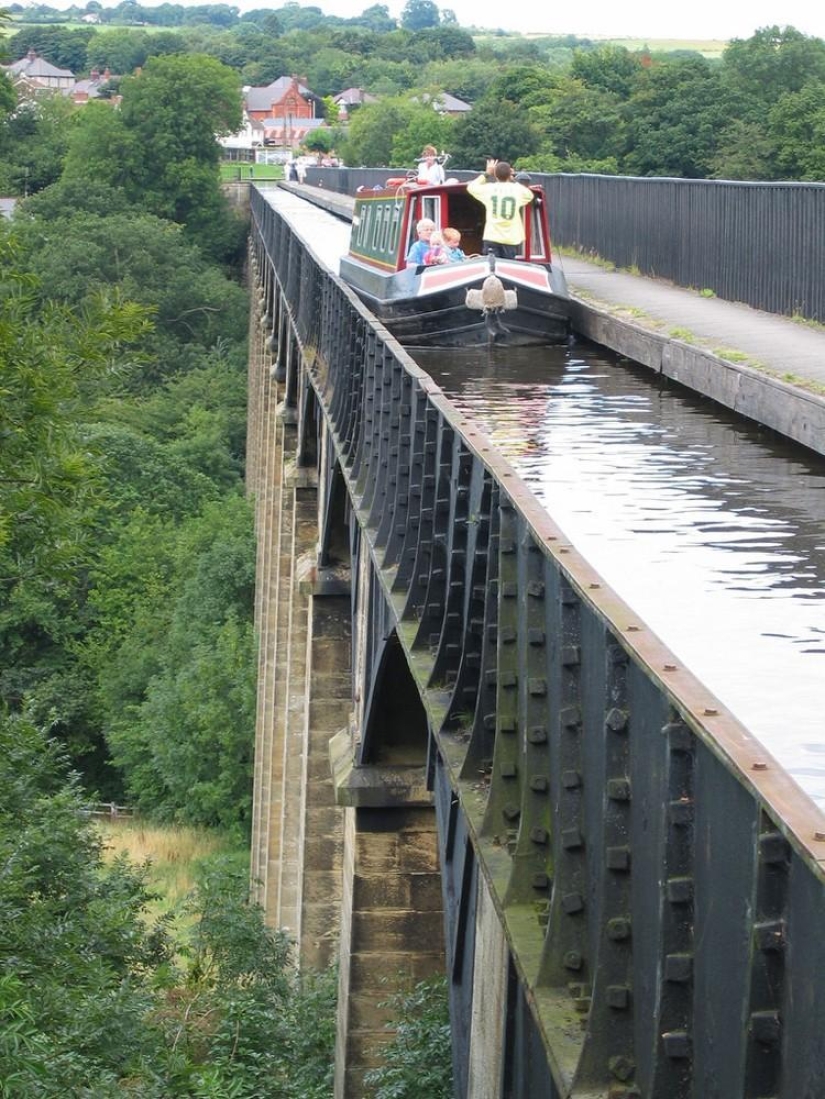
The aqueduct is 307 meters long, 3.4 meters wide, and 1.6 meters deep. It is part of an 18-kilometer aqueduct system.
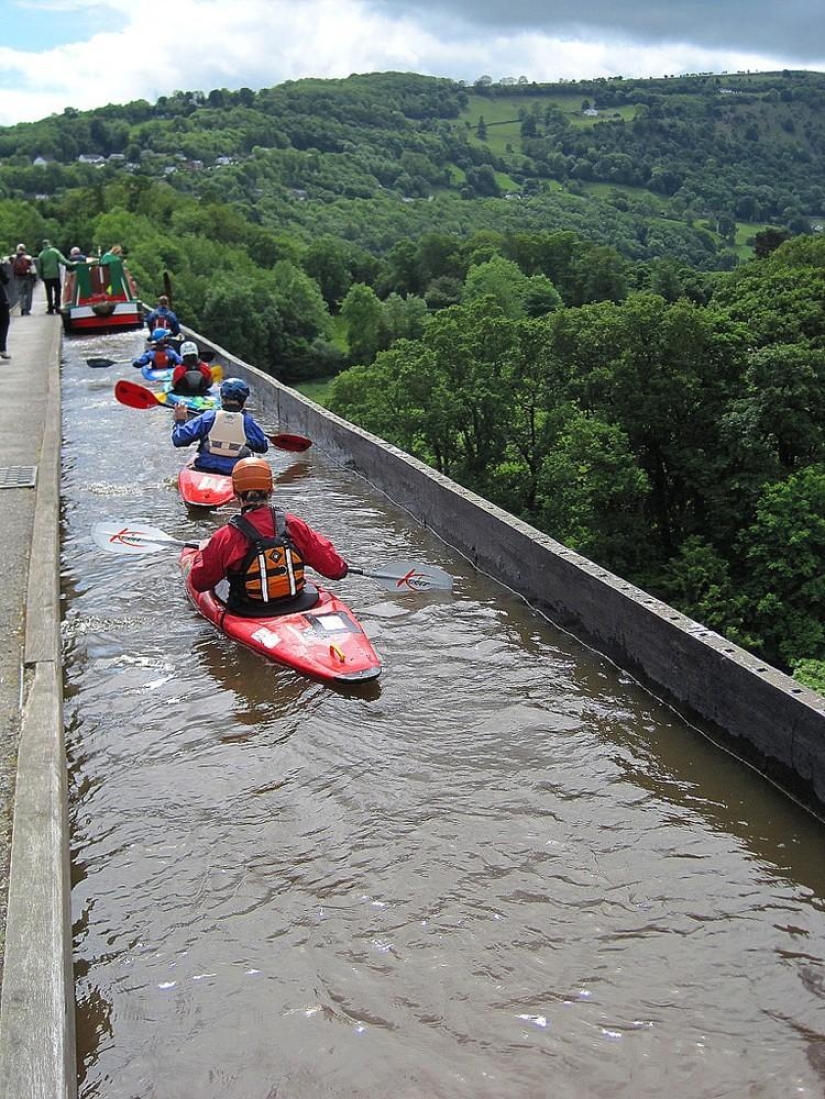
The aqueduct consists of a cast-iron trough supported at a height of 38 meters above the river by iron arches supported on 19 hollow stone columns.
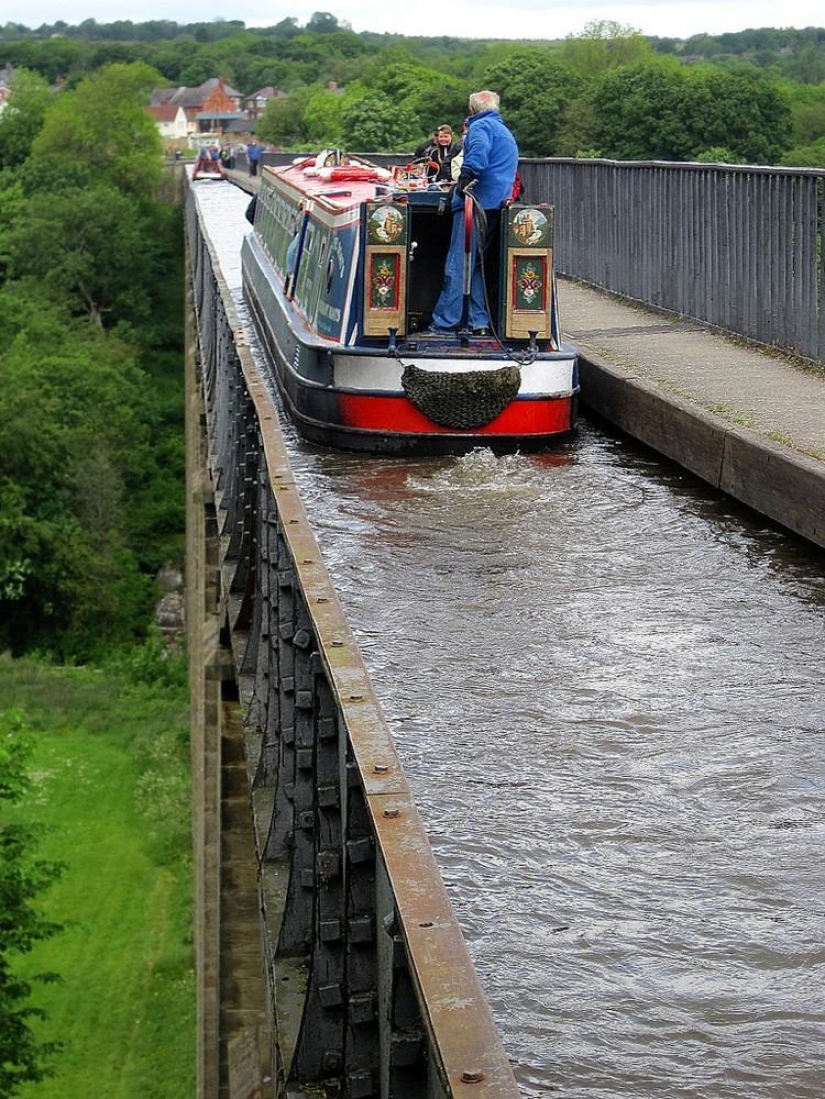
The use of cast iron and steel in the construction of the aqueduct made it possible to make light and strong arches, creating at the same time the effect of monumentality and elegance.
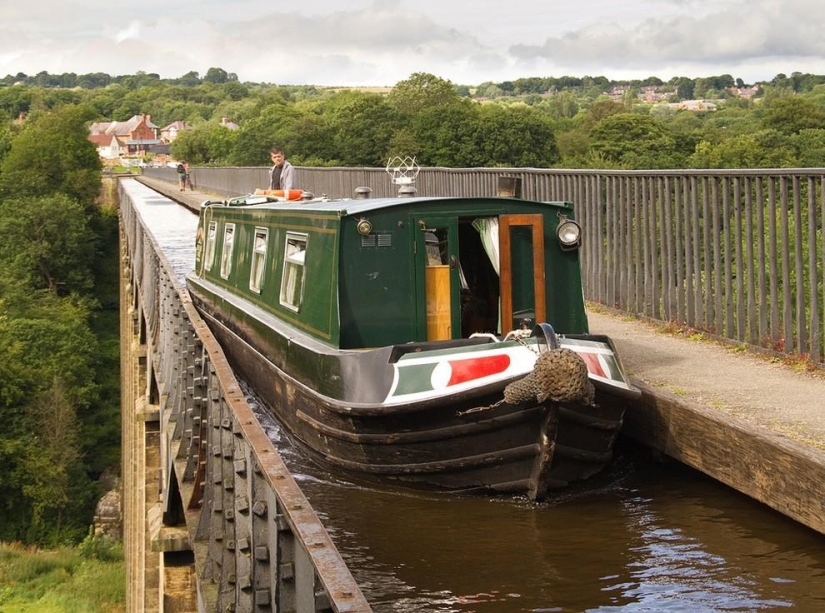
The canal had a significant impact on the economic well-being of the region during the first half of the XIX century, contributing to the rapid development of coal mining, metalworking, lime quarrying and lime production. Slate quarries in the mountains of Wales and agriculture also benefited from the canal.
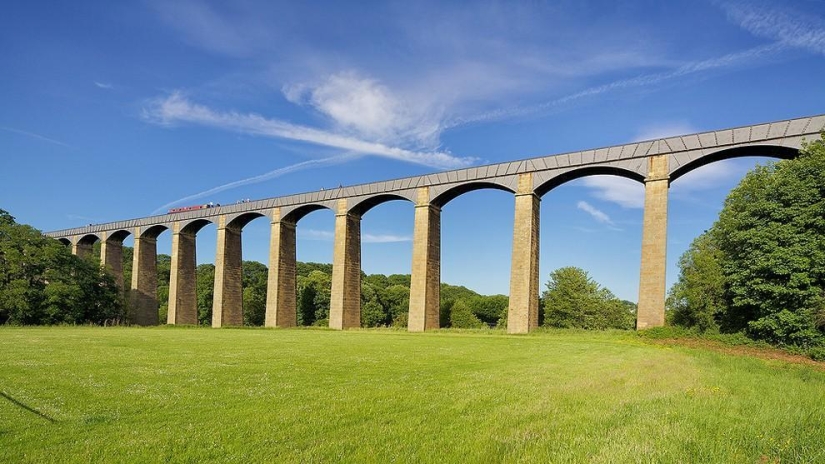
Today, the canal no longer transports coal and lime, but is a very popular tourist destination.
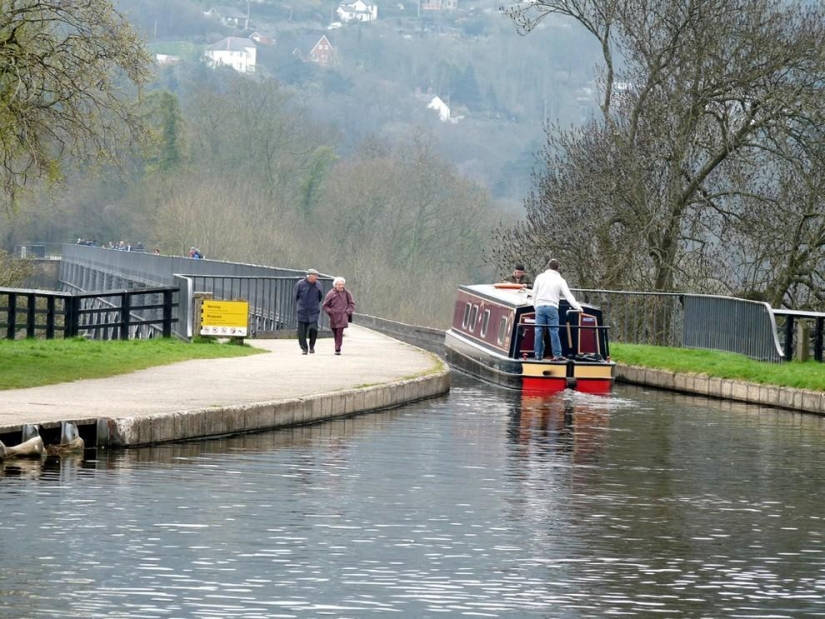
Since 1954, the canal has been managed and maintained in navigable condition by the British Waterways Authority.
Rotary aqueduct in Barton (Barton Swing Aqueduct)
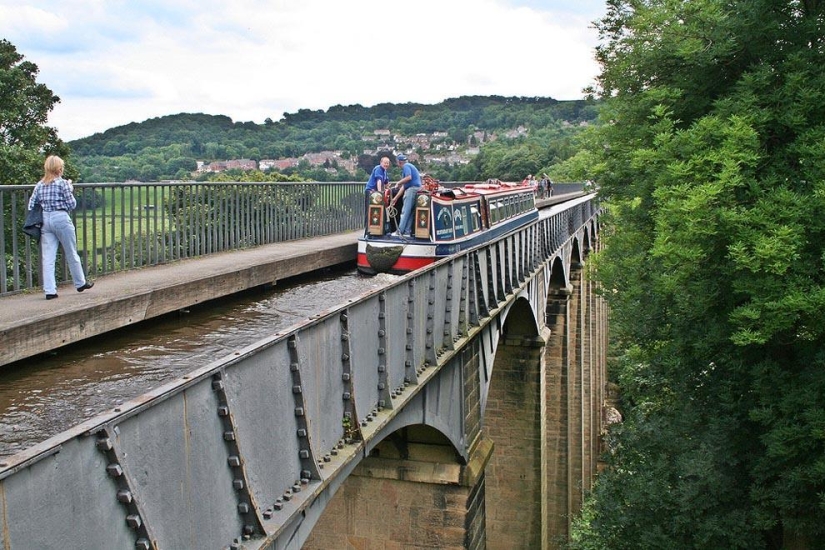
This swing aqueduct is a movable water bridge located in Barton, UK, on the River Irwell. It "transfers" the Bridgewater Canal through the Manchester Ship Canal.
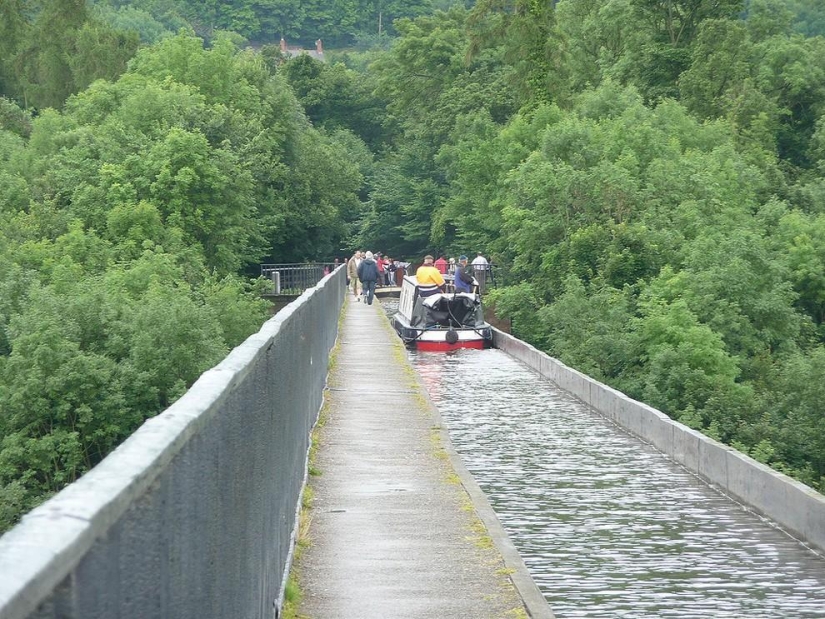
The rotary mechanism allows large vessels to sail through the Manchester Ship Channel, and small narrow boats to cross it along the top. When a large vessel needs to pass through the canal, the iron bridge is 100 meters long and weighs 1,450 tons and turns 90 degrees.
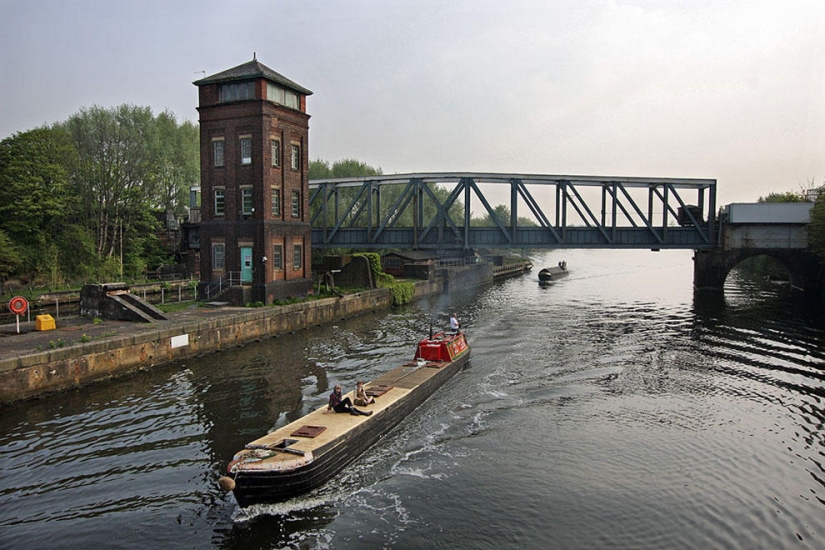
The locks at both ends of the bridge gutter hold about 800 tons of water. Other locks, on the banks of the canal, retain water in the areas adjacent to the bridge. The same swing bridge, but designed for road traffic, is located here, just upstream.
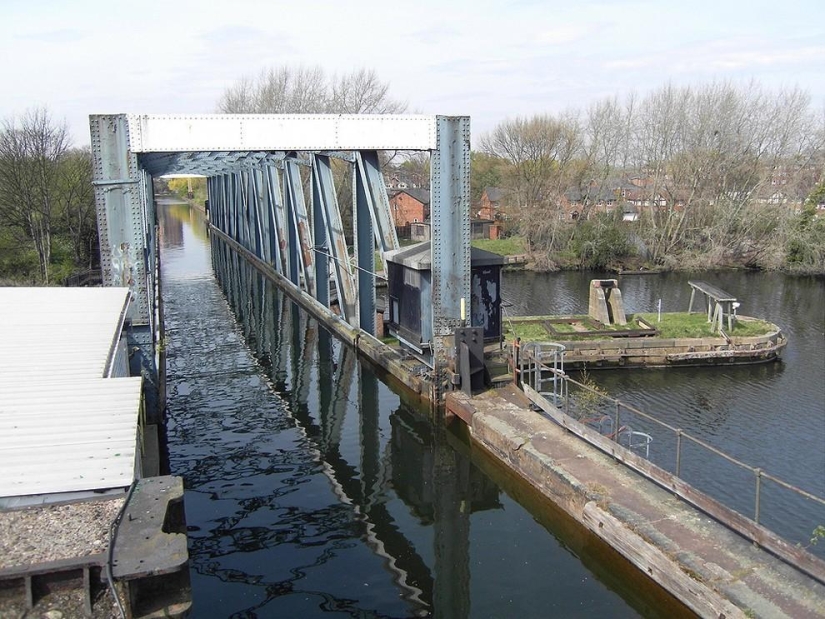
This aqueduct is the first and only rotary aqueduct in the world. It is considered a real masterpiece of Victorian construction art. Opened in 1894, the bridge is still regularly used for its intended purpose.
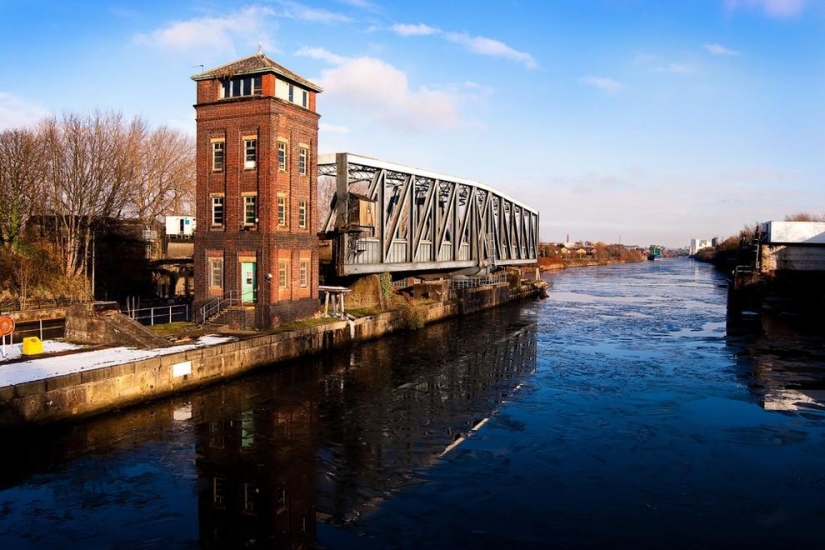
Previously, on the site of this water bridge there was an ordinary stationary stone aqueduct, which prevented the passage of new vessels of large sizes. Therefore, the construction of a swing bridge has become a necessity.
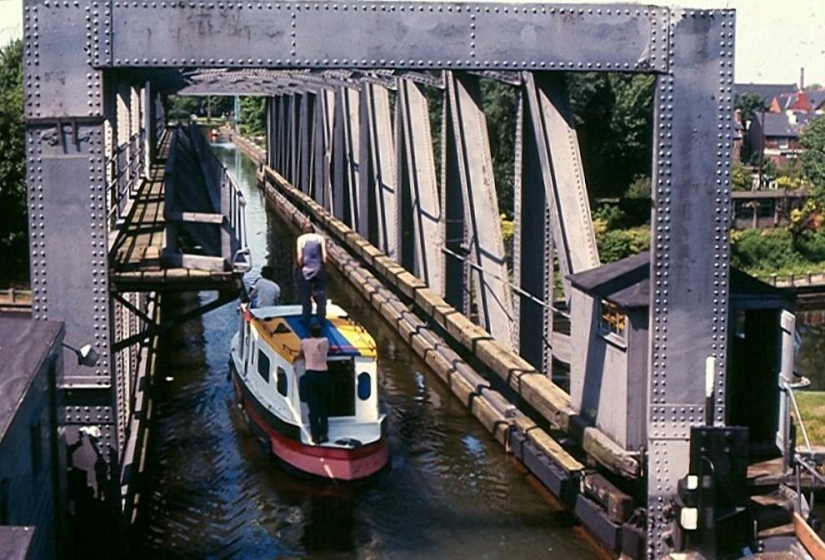
The rotary aqueduct (on the left) in a closed position carries out the intersection of the Bridgewater and Manchester Ship channels. The road swing bridge is on the right.
Keywords: Britain | Germany | Canal | Bridge | Rivers
Post News ArticleRecent articles

It's high time to admit that this whole hipster idea has gone too far. The concept has become so popular that even restaurants have ...

There is a perception that people only use 10% of their brain potential. But the heroes of our review, apparently, found a way to ...
Related articles

In the Victorian era Britain was quickly urbanized. By 1851 it became the first country lived in cities of more people than in the ...

Spent an entire year of British photographer Simon Roberts (Simon Roberts), exploring the vast Russian expanses. It was almost 14 ...

About each nation there are stereotypes. For example, the Germans say that they love the "Ordnung", discipline and purity. This ...

New Year's is a time to surprise and delight loved ones not only with gifts but also with a unique presentation of the holiday ...